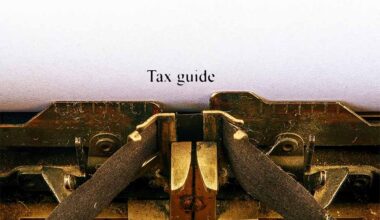Educating a child is no longer affordable with the rising cost of education. Individuals are barely able to save money as they are supposed to spend mounds of money on education. However, the Income Tax Act 1961 provides tax benefits that can be claimed under Section 80C. The Act specifically mentions the tuition fee tax deduction along with expenses that are not included. In this article, we will uncover more details on the tax benefit of tuition fees, its eligibility, the claiming process, and more.
Tax Benefit on Tuition Fees: An Overview
With a view to increase the significance of education within the population, the Income Tax Department has implemented several tuition fee tax rebate and exemptions. Two provisions facilitate tax exemptions on tuition fees, namely Section 80C and Section 10(14). These provisions serve to assist taxpayers in lowering their taxable income. The Indian government permits individuals to claim deductions for tuition fees paid on behalf of their children. The provision for tuition fee tax benefit is discussed below:
- Section 80C: The maximum deduction limit permitted under Section 80C is Rs. 1.5 lakhs. If a taxpayer has tuition fees to cover as a primary concern, they can allocate the entire 80C limit for tuition fees. However, if the taxpayer has additional financial concerns, such as life insurance, investments, or provident fund contributions, they must distribute the full deduction limit of up to 1.5 lakhs as per their priorities.
- Section 10(14): In India, taxpayers employed within the country can avail of tuition fee deductions under Section 10(14) of the Income Tax Act, known as the “Children’s Educational Allowance.” This provision offers tax benefits of up to Rs 1200 annually per child, applicable to a maximum of two children.
Eligibility for Tuition Fees Tax Relief
To claim the benefits of student tuition tax deduction, the taxpayer must match the eligibility under Section 10(14) or Section 80C as applicable. Here are the eligibility criteria for both tax benefit provisions:
Eligibility Under Section 10(14)
- The tax benefit on tuition fees is applicable to individuals employed in India only.
- Deductions for education fees in income tax are valid for expenses incurred in India.
- There is no minimum age requirement for claiming Children’s Education Allowance.
- Normal children can claim reimbursement up to the age of 20, while specially abled children can claim up to the age of 22.
- The school or institution must be recognised by an educational authority.
- Tuition fee deductions apply for up to two children. In a family with two individual taxpayers, deductions can be claimed for up to four children attending schools in India.
- Single parents and unmarried guardians can also claim deductions if they send their children to authorised schools in India.
Eligibility Under Section 80C
- The tuition fees for tax deduction under Section 80C are available for individual taxpayers and Hindu undivided families (HUF) but not for corporations.
- The maximum deduction under this provision is allowed for up to Rs. 1.5 lakhs per financial year. Each taxpayer can claim deductions for two children. If both parents are taxpayers, they can collectively claim deductions for four children. Unlike Section 10(14), a single taxpayer cannot claim deductions for more than two children.
- You can claim tax deductions for tuition fees paid to educate your children but not for educational expenses of yourself or your spouse.
- The deductions apply to tuition fees on full-time courses in schools, and undergraduate and postgraduate institutions. (Any fee associated with part-time courses is not eligible.)
- The educational institution where the child is studying should be affiliated with the recognised educational authority.
Educational Expenses Not Eligible for Claim Under Tuition Fee Expenses
While assessing the amount of tax benefit on your child’s tuition fees, some educational expenses are avoided. Below are the major expenses that are not included in the tuition fees:
- One-time admission fee
- Annual fee
- Redemption fee
- Transportation costs
- Smart class fee
- Dormitory fee
- Additional class fee
- Fees for extracurricular activities
- Mess fee
- Library fee
- Stationary costs
- Donations to schools/universities
- School development costs
- Late payment of tuition
- Expenses for sports and activity classes
- Cost of coaching or private lessons.
As per section 80C, there are some expenses that despite falling under tuition fees, are not considered for tuition fees tax deduction. These are:
- Part-time study fees
- Fees for education at international colleges/universities.
- The tuition expenses that cover you, your spouse, siblings, and other family members, excluding your children.
- Educational costs for Indian schools located outside India.
(Please note that the list mentioned above is not exhaustive.)
How Does Tuition Fee Tax Deduction Work?
The tuition fee tax rebate allows the parents of a child to claim tax benefits on tuition fees. As per section 80C, they can claim up to Rs. 1.5 Lakhs as a tax deduction. An example below helps you understand the working of tuition fee tax benefit:
Let’s take the case of Mr. Karan, who is employed and has two children. He allocates Rs. 45,000 for his son’s annual tuition and Rs. 35,000 for his daughter’s education, resulting in a combined annual tuition expenditure of Rs. 80,000.
As a result, Mr. Karan can utilise this tuition payment as a deduction when filing his income tax return. This provision not only allows him to reduce his taxable income but also facilitates tax savings.
Procedure to Claim Tax Benefits on Tuition Fees
While claiming a tuition fees tax deduction, it is important to remember that the deduction limit under section 80C and section 10(14) differs from each other. Depending on the applicable provision, you can follow the steps below to claim the tax benefit on tuition fees:
- Provide your employer with the receipt issued by the educational institution for the complete payment made within the current financial year. The submission must be done before the financial year’s end.
- Attach the proof of tuition fee payment in Form 12BB before submitting all the necessary proof at the end of the respective fiscal year.
- Those who are not salaried employees must claim the deduction by presenting the fee paid under Section 80C. It should be done when filing income tax returns using the VI-A schedule.
Conclusion:
The income tax department supports children’s education till 20 years of age by providing them with tax benefits on tuition fees. The provision under section 80C and section 10(14) of the Income Tax Act, 1961, validates this tax exemption for taxpayers. Both the provisions have unique eligibility criteria stated above, which the parents must abide by on their child’s behalf. One must take into account the expenses that are not accounted for in the tuition fees listed above before applying for a tax claim.





